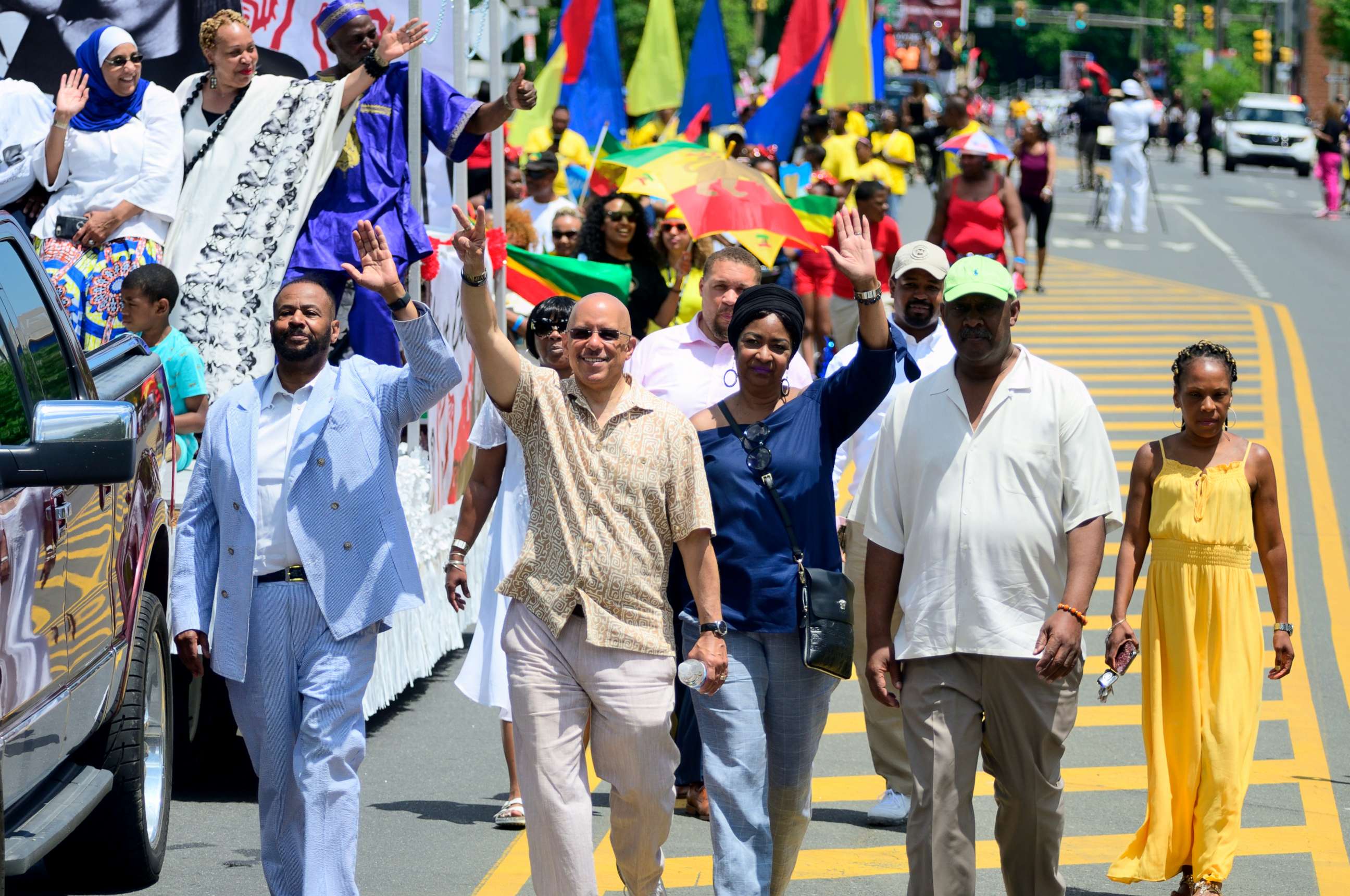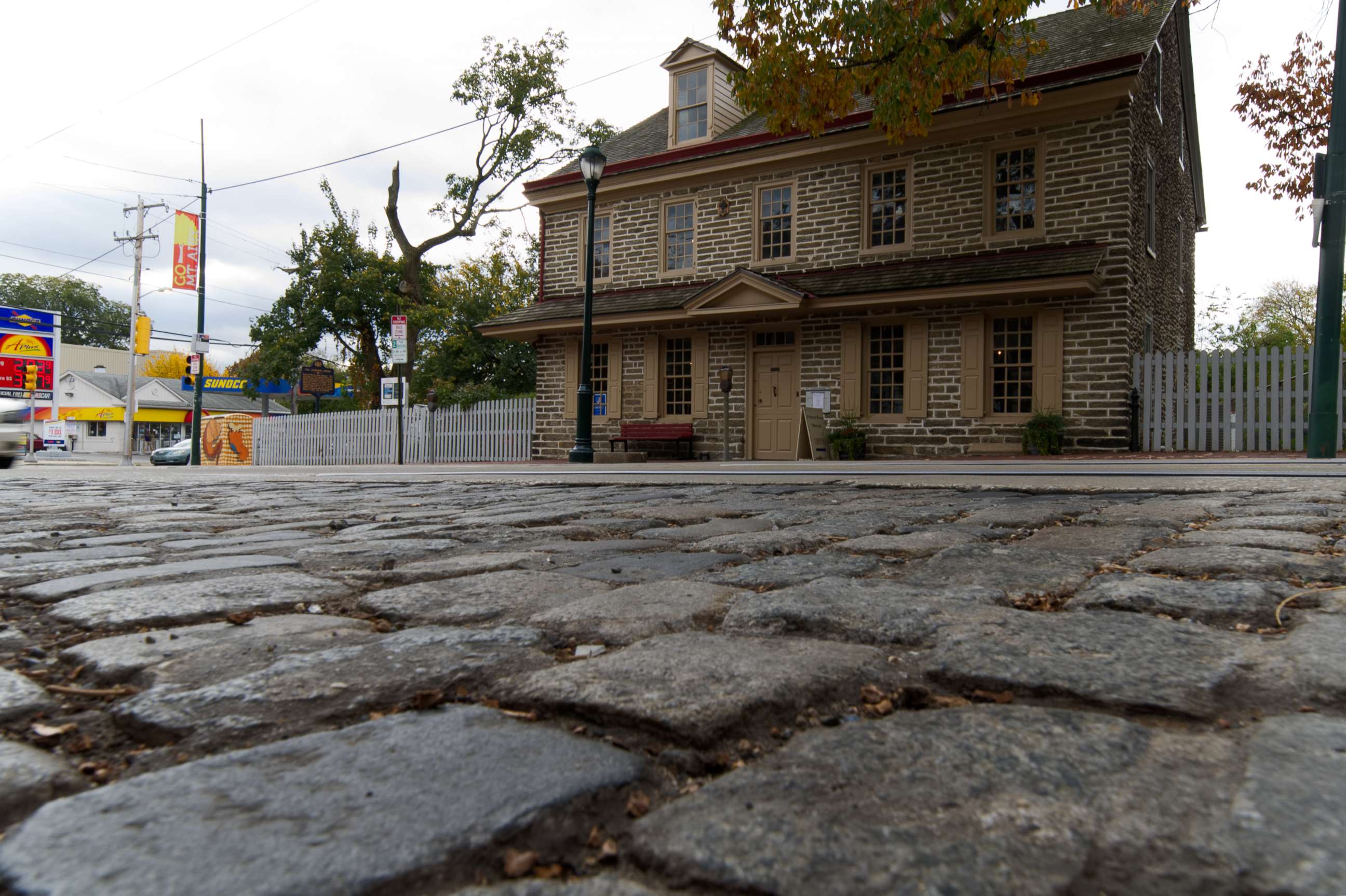Philadelphia’s only accessible and intact stop on Underground Railroad goes virtual for Juneteenth
The Johnson House was a safe house for slaves escaping captivity.
For 13 years, Philadelphia's only accessible and intact stop on the Underground Railroad has celebrated Juneteenth with one of the largest street festivals in the city.
If you thought the novel coronavirus pandemic would stop the historic Johnson House from celebrating the tradition this year, you were wrong.
The Johnson House said even with the pandemic, the protests sparked by the death of George Floyd made its Juneteenth festival even more important. So they decided to go virtual.
"Our goal is for Saturday to be an opportunity to educate the broader community about the importance of fighting for freedom," said Cornelia Swinson, the executive director at Johnson House.
"So it's important for us to have this event. Even though we're not able to do it on the street, we thought we would bring it online because it is needed especially right now during these times."

Swinson said every year the Juneteenth celebration includes panel discussions on topics like the history, heritage and culture of historically black colleges and universities, the incarceration of women and girls and modern-day slavery.
They also typically have street vendors, music and food trucks. This year they plan on having a majority of the usual attractions -- just online.
They will have a virtual panel discussion, poetry, drummers, reenactments and a children's book giveaway.
Swinson said understanding the meaning and importance of Juneteenth is the reason not only to continue the festival, but to educate people of all races.
"There is inequity in our schools, there's inequity in our communities, there's inequity in our economy, there is inequity in the jobless rate in Philadelphia, the state and all over the country," said Swinson. "And that's what Juneteenth means to me. It means that this is the kind of struggle and the kind of fight that goes on all the time. It never ends. The moment you stop, is the moment you leave it where it was."

Now a historic site and museum, the Johnson House was owned by the Johnson family, Quaker abolitionists who worked with other European Americans and African Americans --both free and enslaved -- to secure safe passage along freedom routes and safe houses.
Visitors have a chance to see where slaves were able to hide, learn in-depth history about the civil right movements and the underground railroad, and walk the same room where abolitionist Harriet Tubman visited.
Although Juneteenth is a day of celebration of the end of slavery, the museum is a symbol of the need to keep educating one another in modern times.
"I have people tell me, 'Why do you want to do this?' Or, 'Why do you want to talk about slavery?' 'We have freedoms in our country as a result of slavery ending,' they say," said Swinson.
"But what they don't realize is everyone is still not free. And that freedom is still not the same for everyone."
The five-hour online festival will be held June 20, from noon to 5 p.m.; livestream on Zoom and the Johnson House's Facebook page.




